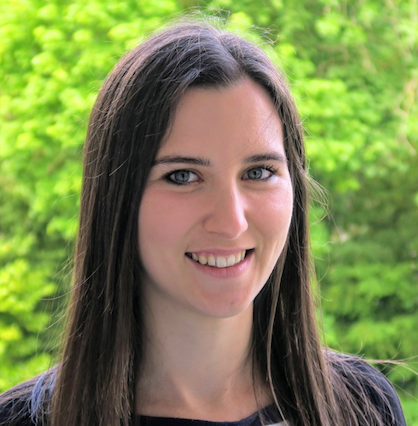Learning to talk about alcohol consumption

Prevention of heavy drinking in Latin America
Talking about their use of alcohol helps patients. But how can doctors and other health care providers be encouraged to bring up this topic with their patients, especially if they don’t usually do so? The SCALA project (Scale-up of Prevention and Management of Alcohol Use Disorders and Comorbid Depression in Latin America) is investigating whether scaling up an intervention programme for alcohol problems is more effective in the presence of municipal action and support. 'We want to teach health care providers how to screen, advise and refer patients.'
Alcohol use can have serious adverse effects on both individuals and society as a whole. Although there are intervention programmes to prevent and control excessive drinking, their implementation often has little impact. The SCALA project is implementing and testing a screening and intervention programme that proved successful in the past and is now being scaled up. The Latin American cities taking part in the project are Mexico City, Mexico, and Lima, Peru, as well as three small cities near Bogotá, Colombia. The hypothesis is that the intervention will lead to more screenings by embedding primary health care activities into the local community through municipal support and training individual health care providers.

Scale-up of Prevention and Management of Alcohol Use Disorders and Comorbid Depression in Latin America
Start/end project: December 2017 - November 2021
This project has received funding from: H2020
Project website: www.scalaproject.eu
Local community
The intervention programme is expected to succeed because of two specific activities, explains Adriana Solovei, one of the coordinators of SCALA together with Daša Kokole. 'It will teach health care providers how to bring up the topic of alcohol consumption during patient interviews and how to subsequently advise or refer patients if necessary.' This currently doesn’t happen enough. 'Doctors think drinking alcohol isn’t harmful, avoid the subject or don’t have time to engage in prevention activities', explains Kokole. Solovei adds, 'We’re testing how we can make it easier for health care providers to implement this intervention more often.'
One hypothesis is that this won’t really work without another activity: the support of the local community. As Solovei explains, 'These interventions have to be supported by stakeholders such as municipal health services to, for example, facilitate communication campaigns to constantly remind health care providers of the fact that being open about alcohol use is very beneficial to patients.' To find out whether the involvement of the local community makes a difference, the researchers are comparing two districts in each city. One district receives municipal support of the training programmes and the other district doesn’t.
Ownership

The SCALA implementation will last eighteen months. It’s a huge project: in each country, almost twenty health care institutions and about five hundred health care providers are participating. Each health care institution is expected to screen 800 to 4000 patients. According to the researchers, the project is special in that they are evaluating not just the effects of the implementation, but also the processes and costs involved. 'I focus on how the intervention is implemented and what changes are needed in the local context, for example', says Kokole. 'Adriana examines whether it’s worth the investment. Are there any (financial) barriers that prevent people from participating?'
The intervention is currently being introduced in the cities. It’s too early for results, but a first observation is that the participating health care providers are very motivated. 'According to the protocol, doctors only have to bring up the topic with patients who engage in risky alcohol use, but they bring it up with other patients as well', says Kokole. The implementation also appears to be more successful thanks to certain stakeholders who 'take ownership of the intervention', says Solovei. 'A hospital employee in Colombia did this. As a result, we were very successful in recruiting health care providers.'
International collaboration

A consortium of several international universities in both Europe and Latin America are working together on SCALA. The Department of Health Promotion is coordinating the project. According to the researchers, a lot of knowledge about interventions and process evaluation is being exchanged. Newcastle University, for example, is specialised in tailored clinical interventions, Fundació Clínic Barcelona in developing training programmes and University Medical Centre Hamburg-Eppendorf in mental disorders. Alcohol problems and depression often go together. The project partners based in Latin America provide local expertise.
In addition to facilitating knowledge sharing, this international collaboration opened up the possibility of receiving European funding. SCALA already received funding from Horizon 2020. 'A project carried out by a consortium like this is more likely to receive funding', explains Kokole. 'One condition for these kinds of projects is that you have to know your partners, know they are reliable and know you can work together with them.'
Global research
SCALA is a wonderful example of a project in which global research is relevant at the local level. 'This shows from the way our project is organised', says Solovei. 'It was prepared through international cooperation and then implemented locally in city districts. But the lessons learnt locally can later be applied in different contexts.'
The social importance of SCALA is obvious. 'At its core, the project is about creating connections within a community', says Solovei. 'We want to gain insight into processes to involve the community in the interventions.' Ultimately, the goal of the project is to successfully scale up the interventions to a national level. Kokole adds, 'If this health care intervention succeeds - taking contextual, local and cultural adjustments into account - it should theoretically work anywhere'.
Text: Hans van Vinkeveen
Translation: Emdash
Research team
- Hein de Vries, Professor of Health Communication, Maastricht University
- Liesbeth Mercken, now: Associate Professor Social Networks and Health- Open University
- Adriana Solovei, now: Postdoctoral Researcher. University of Amsterdam
- Dasa Kokole, now: Consultant at World Health Organization
Involved partners
-
National Institute of Psychiatry, Ramon de la Fuente Muniz, Mexico

Our most important output for societal target groups
- SCALA Implementation framework
The main output of the SCALA project is the SCALA Implementation framework, which is freely available on the SCALA project website: https/www.scalaproject.eu. SCALA framework
This framework can be used to guide the implementation of health programmes in various regions of the world, being relevant to e.g., program directors and managers working in primary health care centres and municipal health departments; professional groups supporting primary health care providers; and, primary health care providers themselves who are active in their communities to help decrease heavy drinking and the harm done by alcohol.
- SCALA training package
Moreover, in SCALA a training package (in Spanish) was developed, which implementable in the three participating countries and beyond. This training package is freely available on the SCALA project website and can be used for training health care providers on the topic of providing alcohol screening and brief advice to their patients. SCALA training package
- Communication campaign materials
Also, communication campaign materials that have been developed in the three participating countries on the topic of alcohol screening and brief advice (e.g., posters, leaflets, videos) are freely available on the SCALA website. Project outputs (scalaproject.eu)
- Youtube videos
Five video focusing on the most important research outcomes of SCALA can be seen on the project YouTube channel:
- The SCALA Study – tailoring a primary health care programme for alcohol and co-morbid depression
- Tailoring the SCALA programme to local contexts in Peru, Colombia and Mexico
- The SCALA Project in Latin America – Experiences, challenges and lessons from Peru, Colombia and Mexico
- The SCALA Project Outcomes – Can we improve alcohol and depression measurement in primary health care?
- The Economic Outcomes – Is it worth investing in alcohol measurement in primary health care?
- Cordis
The results of SCALA, have been disseminated on CORDIS - a website of the European Commission focusing on dissemination of EU funded research.
- Regional Health Office Peru
In Peru, the Regional Health Office disseminated several communication materials developed in SCALA on their website and social media channels (examples of the disseminated videos are included in the links below):
https://www.diresacallao.gob.pe/wdiresa/documentos/extras/FILE0008312021.pdf
https://www.diresacallao.gob.pe/wdiresa/documentos/extras/FILE0008352021.pdf
https://www.diresacallao.gob.pe/wdiresa/documentos/extras/FILE0008362021.pdf
https://www.diresacallao.gob.pe/wdiresa/documentos/extras/FILE0008372021.pdf
https://www.diresacallao.gob.pe/wdiresa/portal/contenido/15/
Our most important scientific output
- Kokole, D., Jané-Llopis, E., Mercken, L., Rey, G. N., Arroyo, M., Gómez, A. P., ... & Anderson, P. (2023). Protocol for a process evaluation of SCALA study–intervention targeting scaling up of primary health care-based prevention and management of heavy drinking and comorbid depression in Latin America. Evaluation and program planning, 97, 102217.
- Solovei, A., Rovira, P., Anderson, P., Jané-Llopis, E., Natera Rey, G, Arroyo, M., Medina, P., Mercken, L., Rehm, J., de Vries, H., & Manthey, J. (2023). Improving alcohol management in primary health care in Mexico: A Return-on-Investment analysis. Drug and Alcohol Review Journal.
- Solovei, A., Jané-Llopis, E., Mercken, L., Bustamante, I., Kokole, D., Mejía-Trujillo, J., Medina Aguilar, P.S., Natera Rey G., O’Donnell, A., Piazza, M., Schmidt, C.S., Anderson. P., & de Vries, H. (2022) Effect of Community Support on the Implementation of Primary Health Care-Based Measurement of Alcohol Consumption. Prevention Science, 1-13.
- O'Donnell, A., Schmidt, C. S., Beyer, F., Schrietter, M., Anderson, P., Jane-Llopis, E., ... & Schulte, B. (2022). Effectiveness of digital interventions for people with comorbid heavy drinking and depression: A systematic review and narrative synthesis. Journal of affective disorders, 298, 10-23.
- Solovei, A., Mercken, L., Jané-Llopis, E., Bustamante, I., Evers, S., Gual, A., ... & Anderson, P. (2021). Development of community strategies supporting brief alcohol advice in three Latin American countries: a protocol. Health Promot Int.
- Solovei, A., Manthey, J., Anderson, P., Mercken, L., Jané Llopis, E., Natera Rey, G., ... & Evers, S. (2022). Costs of an alcohol measurement intervention in three Latin American countries. International Journal of Environmental Research and Public Health, 19(2), 700.
- Scoppetta, O., Anderson, P., Perez-Gomez, A., Mejia-Trujillo, J., Solovei, A., O'Donnell, A., ... & Rowlands, G. (2021). Feasibility of Implementing Alcohol Health Literacy Tests in Colombia. Journal of Alcohol & Drug Education, 65(2), 61-86.
- Anderson, P., Manthey, J., Llopis, E. J., Rey, G. N., Bustamante, I. V., Piazza, M., ... & Rehm, J. (2021). Impact of training and municipal support on primary health care–based measurement of alcohol consumption in three Latin American countries: 5-month outcome results of the quasi-experimental randomized SCALA trial. Journal of General Internal Medicine, 1-9. doi.org/10.1007/s11606-020-06503-9
- Kokole, D., Mercken, L., Jané-Llopis, E., Rey, G. N., Arroyo, M., Medina, P., ... & de Vries, H. (2021). Perceived appropriateness of alcohol screening and brief advice programmes in Colombia, Mexico and Peru and barriers to their implementation in primary health care–a cross-sectional survey. Primary Health Care Research & Development. 22.E4. doi:10.1017/S1463423620000675
- Kokole, D., Jané-Llopis, E., Mercken, L., Piazza, M., Bustamante, I., Natera Rey, G., ... & Anderson, P. (2021). Factors associated with primary health care providers’ alcohol screening behavior in Colombia, Mexico and Peru. Substance Abuse, 42(4), 1007-1015.
- Manthey, J., Solovei, A., Anderson, P., Carr, S., & Rehm, J. (2021). Can alcohol consumption in Germany be reduced by alcohol screening, brief intervention and referral to treatment in primary health care? Results of a simulation study. Plos one, 16(8), e0255843. https://doi.org/10.1101/2021.05.18.21257405
- O’Donnell, A., Schulte, B., Manthey, J., Schmidt, C. S., Piazza, M., Chavez, I. B., ... & Jané-Llopis, E. (2021). Primary care-based screening and management of depression amongst heavy drinking patients: Interim secondary outcomes of a three-country quasi-experimental study in Latin America. PLoS One, 16(8), e0255594.
- Jané-Llopis E, Anderson P, Piazza M, et al. (2020) Implementing primary healthcare-based measurement, advice and treatment for heavy drinking and comorbid depression at the municipal level in three Latin American countries: final protocol for a quasiexperimental study (SCALA study). BMJ Open 2020;10:e038226. doi: 10.1136/bmjopen-2020-038226
- Anderson, P., O'Donnell, A., Kaner, E., Gual, A., Schulte, B., Gómez, A. P., ... & Rehm, J. (2017). Scaling-up primary health care-based prevention and management of heavy drinking at the municipal level in middle-income countries in Latin America: Background and protocol for a three-country quasi-experimental study.F1000Research, 6.
Video
The SCALA Project Outcomes–Can we improve alcohol and depression measurement in primary health care?
